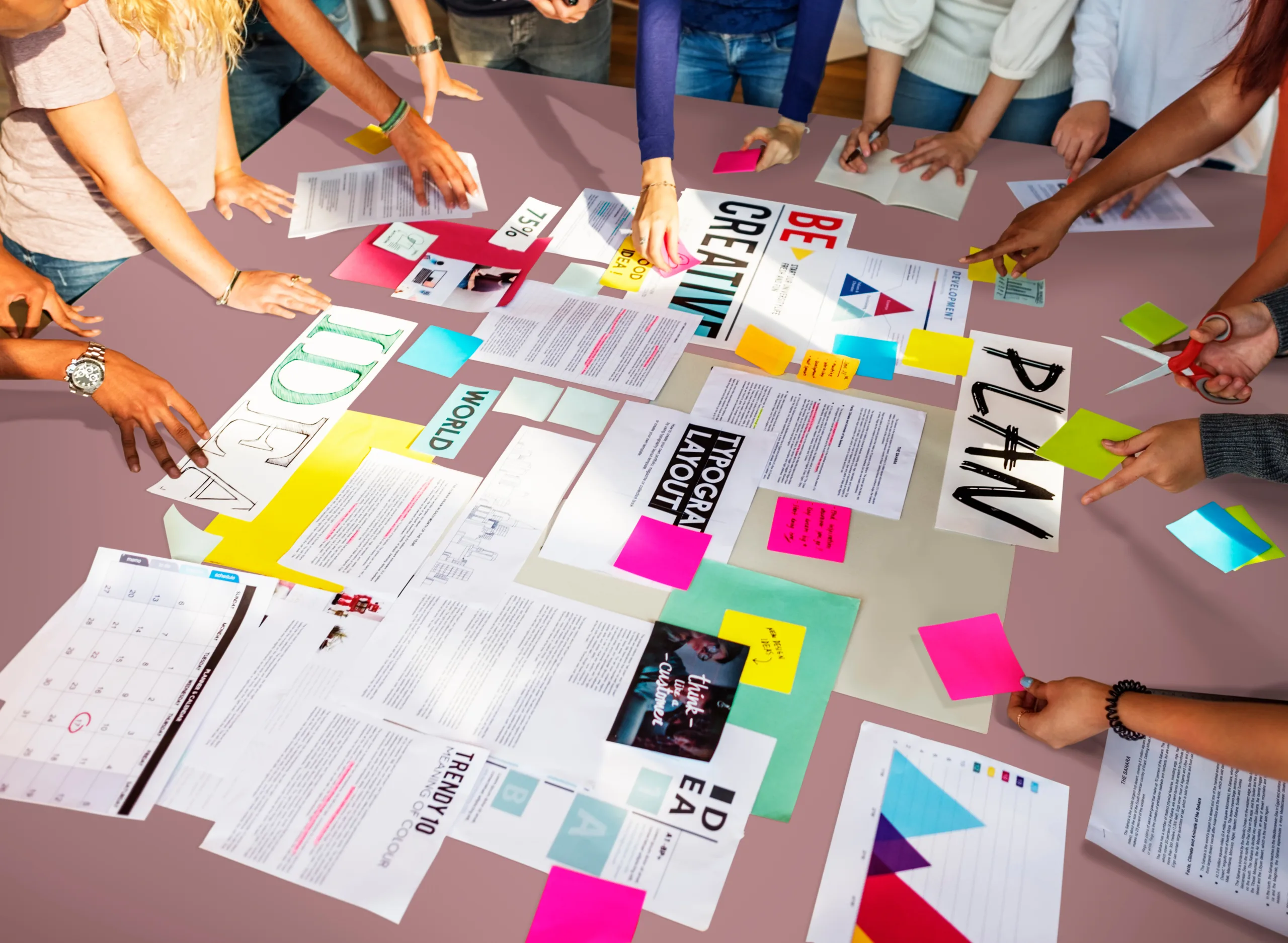Effective collaboration with project-based learning
Project-based learning is more than just teamwork. Using this university teaching method, students can learn from the diversity of their group members and, at the same time, contribute their skills and ideas.

What is a project?
“Project” refers to a form of work in which students work independently on a complex problem within a certain period of time in order to present practical results (“products”) at the end. Projects are usually worked on in teams, so that not only the individual work process has to be organized but also the group work process. Learning and teaching in projects uses this form of work as a framework that addresses and develops a wide range of student skills. In this way, students acquire and refine essential project management skills. Project-oriented learning can be organized in a variety of ways. Projects can have different complex and technically demanding problems as their starting point, they can take different lengths of time to complete, and they can have different commissioners. There are projects that are initiated by the students themselves, those that are commissioned by external cooperation partners, and projects where the teachers specify the tasks and forms of cooperation. Projects can relate to completely different subjects – in addition to technical, economic, or social topics, students can also tackle learning itself in a project (cf. Gerber, Grünvögel & van Treeck, 2016).
Please note:
A good project deals with an authentic, practice-relevant problem, allows for different focuses and approaches, and is open in its outcome.
What is project-based learning?
Step by step: project-based learning
What is the purpose of learning in projects?
Project-based learning is a didactic arrangement that initiates and promotes sustainable learning. In teamwork, students benefit from the diversity of the group and can contribute individual skills, learn as a team, and work on their own skills. Studies show that students improve numerous skills through project-based learning (cf. Chen & Yang, 2019; Efstratia, 2014; Lasauskiene & Rauduvaite 2015):
- Decision-making competence
- Problem-solving skills
- Communication skills
- Cooperation competence
- Self-directed and self-regulated learning
- Self-efficacy
- Time management
However, project-based learning is also a challenge that must be well supported by the teacher.
Assessment with project-based learning
Project-based learning can refer to individual short-term sequences (for example, in a combination of lecture and project-based learning) or determine an entire module as a methodological principle. The performance assessments must be designed accordingly. In general, however, the examination has to relate both to the result (“product”) and the work process so that students have an incentive to get involved in the project and to work according to the intended learning outcomes.
Suitable forms of examination depend on the outcome:
- Functional testing of the product: The usability of designed products can be tested together. For this purpose, it is useful for you as a teacher to formulate the minimum and maximum criteria of the learning outcome of the course that can be achieved for the product within the project.
- Presentation with discussion: A final presentation allows students to present the results of their work and receive feedback. Both positive and critical feedback can boost self-confidence and promote further development. It is often the reflective treatment or, more specifically, the presentation of a result to a stakeholder (with advantages and disadvantages, science-based classification, involvement of the target group) that is the aim of a project-based approach.
- (e-)Portfolio: A portfolio enables reflection on the entire work process by integrating artifacts/intermediate products created during the course and allows for an assessment of individual performance. This can be easily implemented with the THspaces tool. There, students can set up their own spaces in which they can document their reflections. ILU also has a portfolio function.
Designing a project-based course
A setting that requires students to work on problems independently and collaboratively to a high degree must be well organized. Preparation and implementation are a challenge for many teachers and can, therefore, be a deterrent (cf. Lasauskiene & Rauduvaite, 2015). But it doesn’t have to! The following checklist will help you prepare in no time at all.
Experiences from teaching
Cologne University of Applied Sciences
The University’s Interdisciplinary Project Week (HIP) at TH Cologne is an established digital format for interdisciplinary collaboration beyond faculty and subject boundaries. Students learn to operate in heterogeneous teams and develop an understanding of methods from other disciplines.
Dresden University of Technology
In the podcast Trafohaus//Lehre by Hochschuldidaktik Sachsen, Katharina Porepp and Dr. Robert Fischer report on the implementation, lessons learned, and advantages of project-based learning in mechanical engineering.
Any questions?
Still unsure? No problem! Teachers at TH Cologne can contact the Center for Academic Development by e-mail to arrange a consultation.
Links & Literature
Header-Image: © Rawpixel/stock.adobe.com




